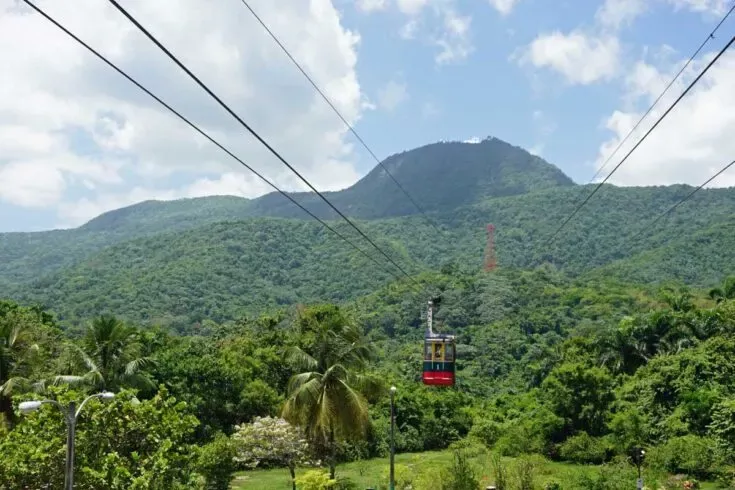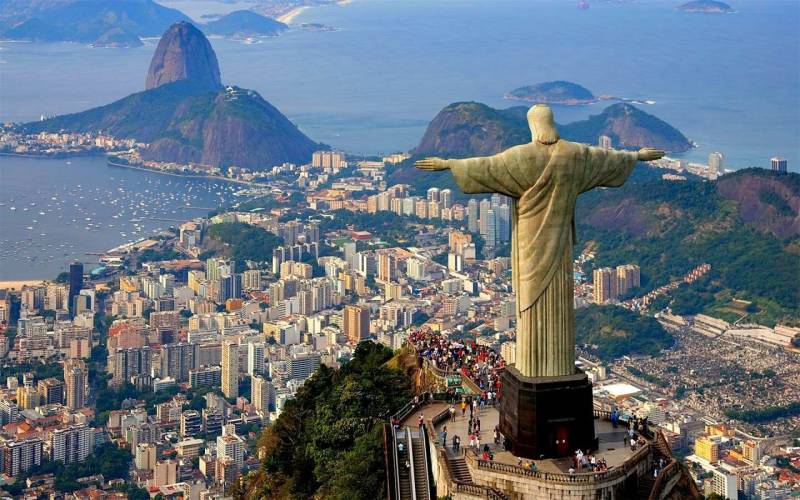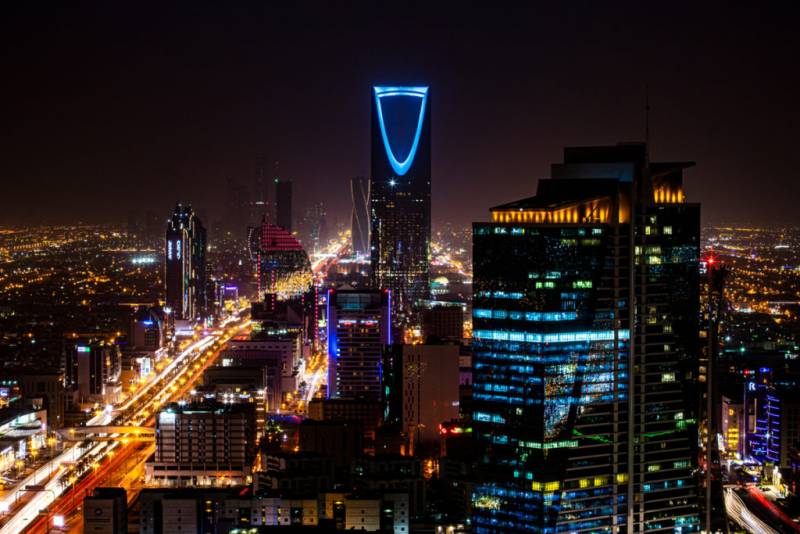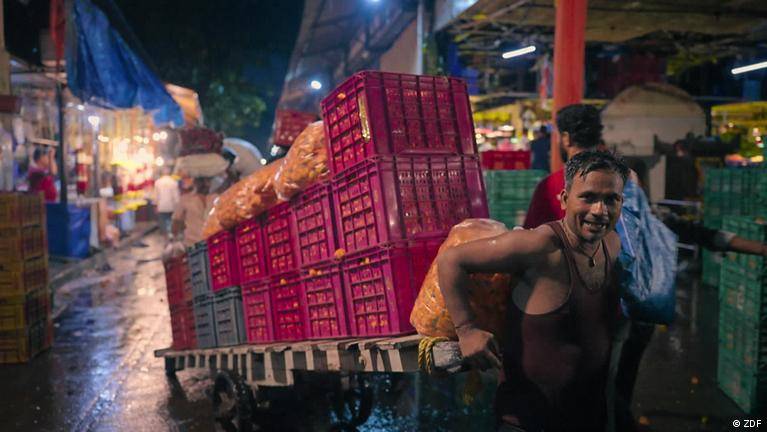The beautiful island of the Dominican Republic is the second-largest and most diverse Caribbean country. Surrounded by the Atlantic Ocean on the north and the Caribbean Sea on the south, the Dominican Republic is a tropical paradise like no other.
Just two hours south of Miami and less than four hours from New York, Dominican Republic is known for its warm climate and the country’s hospitable people. Here you will be surrounded by astounding nature, intriguing history, and rich culture. Within this post, you will have a renewed and expanded knowledge of the Dominican Republic
73 Interesting Facts About Dominican Republic
The Dominican Republic is more than just a venue option for a destination wedding or honeymoon and thanks to these 73 interesting facts you’ll see why the Dominican Republic is loved by many.
1. One Island, Two Countries
There are only two islands in the Caribbean that are shared by two countries. The Dominican Republic and Haiti are one, and the other is Saint-Martin and St Maarten.
2. Travelling to the Dominican Republic
The Dominican Republic is one of the most easily accessible Caribbean countries from the United States with more direct flights than almost any other island.
Punta Cana Airport, which is the closest airport to the luxury resorts of Cap Cana, Casa de Campo, and Punta Cana, has direct flights from over 26 countries, 64 cities, and 90 airports.
Some of the main hubs include Montreal, New York, Panama City, Toronto, Bogata, Miami, London, Fort Lauderdale, Atlanta, Charlotte, Lima, Santiago, Baltimore and San Juan.
3. Flying High
The first privately-owned international airport in the world is in the Dominican Republic and is located on the east side of the island. Punta Cana International Airport is one of the biggest airports in the Dominican Republic.
4. On the Wish List
The Dominican Republic is the most-visited destination in the Caribbean. The island attracts over 6.6 million international travelers per year with Cuba coming in second place, with over 4.7 million visitors per year.
5. 500 Days of Summer
The country experiences warm and sunny conditions for the majority of the year. For this reason, the climate of the Dominican Republic is referred to as the Endless Summer.
6. Big, Bigger, Best
Out of the two islands in the Caribbean, the Dominican Republic is the second-largest. Cuba proudly holds first place for being the largest.
7. Many Years Young
The life expectancy of Dominicans is 72 years old, while the life expectancy of the average U.S citizen is 78 years old.
8. The Capital
Santo Domingo is the capital of the Dominican Republic and was the very first permanent settlement of the Europeans.
9. A Certified Heritage Site
The Colonial City of Santo Domingo, also known as Ciudad Colonial, is a UNESCO World Heritage Site. It is considered to have universal cultural significance as it marks an early colonial settlement in the New World.
10. The Dominican Republic’s Hollywood Debut
Multi-award winning director, Francis Ford Coppola, filmed several scenes of the Godfather Part II in the Dominican Republic’s capital city, Santo Domingo.
11. A Pirates Paradise
The Dominican Republic may have inspired the movie, Pirates of the Caribbean. During the mid-17th century, the island became a hiding place for many real pirates. The Dominican Republic was where these pirates recruited people for raiding Spanish ships.
12. Independence Day
Following both French and Spanish rule from as early as the 16th century, the island nation of the Dominican Republic declared itself an independent nation from the neighboring country of Haiti in 1844.
Before the island gained its independence on February 27th, the country was known as Santo Domingo.
13. A Self-Sufficient Country
The Dominican Republic produces all kinds of food across the nation, making this island a self-sufficient and sustainable country.
14. The Breadbasket of the Caribbean
The Dominican Republic is nicknamed the breadbasket of the Caribbean because it grows, farms, and catches almost everything that the people of the island eat on a daily basis.
Some of the typical dishes you should try are sancocho (a hearty stew, with a mix of seven types of meat and assorted veggies) and mofongo (made with fried plantains, garlic, and pork rinds).
15. The DR Economy
The Dominican Republic has the largest economy in the Caribbean. It is also the fastest-growing economy in all of Latin America, surpassing Panama.
16. Imports and Exports
The Dominican Republic is most famously known for its export of the island’s coffee, sugar, and tobacco. This is the island’s main source of income.
17. Home of the Cigars
Cuba is not the only Caribbean island that loves cigars. Although most people associate Cuba with the best cigars, The Dominican Republic is also one of the world’s biggest and best cigar producers.
18. The DR Tourism Industry
Besides this country’s trade of goods, the Dominican Republic has a booming tourism industry. Tourism in the Dominican Republic plays an equally important part in supporting the economy nowadays.
19. The Dominican Republic Has a Sweet Tooth
The Dominican Republic is a sugar processing powerhouse. This is one of the main industries in the country.
20. The Island is Bananas
When we say the Dominican Republic is bananas, we don’t mean crazy. The island is the source of 55% of the world’s banana market. Bananas are mainly produced in the northwest and south of the country.
21. Money Talks
The currency used on this island is the Dominican Peso, but the U.S dollar is also widely accepted here. One U.S dollar is roughly 50 Dominican Pesos.
22. The Dominican Republic’s Anthropology
The Reserva Antropológica Cuevas del Pomier are a series of caves located north of San Cristobal and south of the Dominican Republic. There are 57 limestone caves with over 600 prehistoric drawings and carvings.
The paintings in these caves represent the most extensive prehistoric art ever discovered in the Caribbean. The works are believed to be by Igneri, The Caribs, and the Tainos indigenous tribes.
23. Ties to Europe
The Dominican Republic is the oldest European settlement in the Western Hemisphere.
24. An Island of Safety & Security
During the Second World War, the Dominican government set up a program called the Dominican Republic Settlement Association Plan.
This plan helped Jewish refugees to get back on their feet and gain a second chance at life. In order to do so, the island provided refugees with plots of land and cattle.
25. Religion
The primary religion of the Dominican Republic is Catholic with 48% of the population. A mere 21% of the population are Protestants and 28% are either Atheist or Agnostic.
26. Catedral de Santa Maria La Menor
The Dominican Republic is believed to be home to the oldest cathedral in both North and South America. The Catedral de Santa Maria La Menor dates as far back as 1540.
In front of the cathedral stands a bronze statue of Christopher Columbus, America’s founding father.
27. Christopher Columbus & ‘Little Spain’
The famous explorer, Christopher Columbus, discovered the Dominican Republic whilst working for the Spanish Crown in 1492. He named it La Isla Espanola (Little Spain) and later called it by the Latin name of Hispaniola, which most natives still refer to as such today.
28. Faro a Colon
Five hundred years after the discovery of the Dominican Republic by Christopher Columbus, a lighthouse called Faro a Colon was built in Santo Domingo.
29. Languages of the Dominican Republic
The official language of the Dominican Republic is Spanish. However, there are many dialects of Spanish spoken throughout the island. The most common dialect derives from Andalucia with some words borrowed from the Arawak Indians.
Spanish is used and spoken by 90% of the population. The next most common language is Haitian Creole, which is spoken by 160,000 people.
30. The National Flag
The national flag of the Dominican Republic is known to comprise four rectangles (two red and two blue) that are centered by a white cross. It’s the only flag in the world that has a picture of the Holy Bible in the middle of it.
The La Republica Dominicana flag, as it is also called, was originally designed in 1844 by the founding father of the new independent Dominican Republic, Juan Pablo Duarte. He’s one of the country’s most beloved heroes due to his role in the Dominican Republic gaining its independence from Haiti.
31. The Island’s National Pride
Each color and symbol in the Dominican Republic flag holds meaning and represents some significance. The blue stands for liberty, the white for salvation, the red for the blood of fallen heroes. The white cross is symbolic of the island’s Christian faith.
32. The Dominican Republic’s National Sport
An interesting fact about the Dominican Republic is that the country is passionate about all things baseball. The sport was first introduced to the country in the 1880s, and since then the game has become somewhat of a national obsession.
33. The Grass is Greener on a Dominican Golf Course
Since we’re talking about sport, you may know that the Dominican Republic has a good reputation for having some of the best golf courses in the world. The country’s golf courses are set along the island’s breathtaking coast.
The most famous of all the golf courses is the Robert Trent Jones Golf Course. This designed course is located around the beautiful Playa Grande Beach. It’s the only golf course in the western hemisphere that has 10 holes located directly on the ocean.
34. The Countryside
The countryside of the Dominican Republic is stunningly beautiful. Happily, the government made a decision to protect 25% of the country’s unique terrain and coastal waters.
35. Life’s a Beach
The Dominican Republic has some of the best beaches in the Caribbean. In fact, there are almost 800 miles of coastline and over 200 beaches.
36. Wildlife on the Island
The Dominican Republic has a very interesting selection of native wildlife.
There is a nocturnal burrowing mammal called a Hispaniolan Solenodon. This is a miniature gecko, which is the smallest lizard in the world. There is also the indigenous Rhinoceros Iguana, the Iguanidae, as well as 50 types of butterfly.
37. The Iguanidae
The Iguanidae is the Dominican Republic’s threatened species of lizard. Also known as the Rhinoceros Iguana, this lizard varies in length from 23-53 inches (60-136 centimeters), while its skin color could be steely grey, dark green, or brown.
38. The Dominican Republic’s National Bird
The Palmchat is the country’s national bird and may be spotted almost everywhere in the country. This creature is a small, long-tailed passerine bird, olive green in color and often found in small flocks high in the palm trees.
39. National Parks of the Dominican Republic
One of the country’s most beautiful national parks is the Parque Nacional del Este. It’s located in the southeastern La Romana area and is one of the country’s most popular tourist destinations.
40. The Dominican Republic’s National Tree
The Mahogany tree is the island’s national tree, while the Mahogany Flower is the national Dominican flower. Mahogany is one of the most commercially prized woods on the island. It’s beautiful, durable, and perfect for the construction of musical instruments, boats, and furniture. This wood is also another great asset for the island’s thriving economy.
41. Waterfalls
Another one of the best natural wonders of the Dominican Republic is the Damajagua Cascades. Located in Puerto Plata, it’s one of the most exciting and invigorating experiences.
42. Lake Enriquillo
Lake Enriquillo is a hypersaline lake; a body of water that contains significant concentrations of sodium chloride or other salts. The lake covers an area of 144 square miles (375 square km) and is home to at least 400 species of animals. The lake is one of the biggest saltwater lakes in the world.
43. The Island’s Natural Beauty
The Dominican Republic is the only country in the world to produce a rare blue variety of the silicate mineral pectolite. Pectolite is a crystal similar to garnet. It’s known to relieve stress-related illnesses, inflammations, infections, and fevers.
However, this rare blue variety found on the island changes color from white to light-blue to green-blue and finally to deep blue.
44. The Amber Museum
The Amber Museum in Puerto Plata houses the famous amber stone with a prehistoric mosquito preserved inside. This can be seen in the box office hit, Jurassic Park. Amber is a fossil tree resin found in only a few places in the world.
45. The Dominican Republic is a Gold Mine
The Pueblo Viejo mine, found in the Dominican Republic, is the site of the single largest gold mine in Latin America and the second-largest gold mine in the world.
46. Whale Watching
The northwestern part of the island, the Bay of Samana, sees humpback whales that visit the island every year between December and March for mating. There is even a sanctuary for whales where the creatures are treated with respect.
Tourists can spot both full-grown humpbacks and their newborn calves. Most male humpbacks will be fighting for attention from the females, making it a fun activity to watch for the whole family. These ocean giants will slap their tails and fins in the air, creating a thunderous round of applause against the waves of the ocean.
47. Monsoon Season
Although the Dominican Republic has a sunny climate for most of the year, the island does experience severe storms during its monsoon season between June and October.
48. The Natural Habitat of the Island
More than 50% of the island is used for agriculture, while 40% is covered by forests.
49. Views From the Top
The best view in the country may be found on top of the Montaña Redonda. On a clear day, they say you can see all the way to Haiti. There is no better place on the island to take photographs as you will get the most breathtaking panoramic sea and mountain views.
50. Defy Gravity
In the southern city of Barahona, on a particular hill by El Polo Magnético (the Magnetic Pole), you can literally challenge gravity. Place your car in neutral and your vehicle will roll uphill.
51. Dominican Republic Architecture
Montana Redonda offers some of the best natural views that the island has to offer, but what about the Dominican Republic’s historical sites? Some must-see visits for culture lovers and budding historians are the Catedral Primada de América and Fortaleza Ozama, the New World’s oldest colonial structure.
52. Los Altos De Chavón
This 16th-century Mediterranean-inspired village is sculpted entirely of stone. This man-made wonder is called the Altos de Chavón. The village sits 300 feet above the Chavón River and was built over a period of six years.
The village opened in 1982 with Frank Sinatra performing live at the 5,000-seat Grecian style outdoor amphitheater, where numerous world artists have since performed. Today the village is a majestic place to tour for its charming medieval feel, its architecture, a plethora of cigars, clothing and jewelry shops, fine dining, and bars.
53. Cuisine on the Island
The Dominican Republic has a variety of phenomenal foods owing to the diversity of ethnicity within the country. The country’s food is a wonderful treasure trove of Spanish, African, and Middle Eastern cuisine.
The country’s culinary efforts are influenced by many countries such as Lebanon, Cuba, Puerto, Mexico, and Latin America. For example, one of the most popular dishes is called Quipe which originates from Kibbeh in Lebanon.
Other very popular dishes are Habichuelas Guisadas, which is a stewed bean dish, Pollo Guisado, which is a braised chicken, and a fan favorite, Tostones, twice-fried plantains.
54. The Dominican Flag
The flag is so beloved that the country’s most traditional dish is even named after it. ‘The Dominican flag’ is prepared using chicken, beans, and rice.
55. The Dominican Republic’s National Drink
Not only does this island export the cocoa bean but it is also one of the country’s national drinks.
56. Presidente
This is the name of one of the most popular beers in the country. The Presidente is a Bohemia beer loved by many locals and tourists alike.
57. The Island’s Legal Systems
The legal drinking age in the Dominican Republic is 18. You can also place your first vote at this age.
58. Elections in the Dominican Republic
Voting is not permitted to the members of the armed forces and the national police.
59. Sealed with a Kiss
If love is in the air, it is best that you and your significant other stick to holding hands in public. In the Dominican Republic, it is illegal to kiss in public.
60. A Kiss on the Hand
This custom is when a young person kisses the hands of their elder family members such as their mom, dad, uncle and grandparents. The term “kissing hands” actually refers to asking for a blessing and is a sign of respect.
dominican republic beach
61. Mama Juana – the Dominican Republic’s Celebratory Drink
If you are in the mood to celebrate, most Dominicans will crack open the local favorite, Mama Juana or Mamajuana. It is made by combining rum, red wine, honey, and herbs and tastes a bit like port wine.
However, this drink is multi-occasional too. The Mama Juana drink is rumored to be an aphrodisiac and also has medicinal value. Locals say it helps with colds and flu, digestion, kidneys, and overall gut health.
62. The Dominican Republic Produces Excellent Rum
The Dominican Republic is also known for producing top-shelf rum. The island’s rum is manufactured using a unique distillation and aging process that brings pleasant taste and smoothness.
63. Drinking is Encouraged
On the Caribbean islands, drinking during the day, at night, and even on Sundays is completely normal. So you can very much enjoy your drink at any time during your visit to the country.
64. Festivals Throughout the Year
Dominican culture is full of flavorful dishes, religious rituals, and Latin music. All of which come together in festivals celebrated throughout the year. The most famous festivals in the Dominican Republic are Guloya, Carnival, Isle of Light, Merengue, and Presidente.
65. Dance, Dance
Merengue is a Dominican Republic type of music and dance that originated on the island but is popular throughout Latin America.
The dance is a blend of European Waltz, African rhythms, Mazurka from Poland, and Cotillion, which is originally a French country dance. Merengue is now known as the national dance of the Dominican Republic.
66. Family Over Everything
The people of the Dominican Republic are all about family and have really strong family values. They have an indestructible belief in the importance of family so much so that the oldest man and the oldest married woman are seen as the heads of the household. The Dominican people are above all, very loyal.
67. Marriage
In the Dominican Republic, when someone gets married, on their wedding day there are bridesmaids, groomsmen, as well as padrinos and madrinas (godparents of the wedding). The godparents are usually the mother of the groom and the father of the bride who also serve as witnesses.
Another wedding tradition is to have a child (usually a boy) carry coins in a tray that are to be given to the priest. The priest passes these coins to the groom, who then passes them to the bride. This exchange signifies the couples’ pledge to provide for each other and for material goods to be shared equally.
68. Time After Time
It might be the island lifestyle where life is slow and relaxed. But here in the Dominican Republic, the people are notoriously always late to events and meetings. So if you’re meeting up with a local, take your time getting there because there is no need to rush.
69. Dominicans All Over the World
Dominicans are the fifth-largest Latino group in the United States. Almost 2 million Dominicans are living in the United States.
70. Celebrities from the Dominican Republic
A couple of the most well-known people of the Dominican Republic include high-end fashion designer, Oscar de la Renta. Also Juan Luis Guerra, a popular singer and songwriter who was born in Santo Domingo. As well as Manny Ramirez, one of the world’s best baseball players and finally actress, singer, and model, Amelia Vega.
71. Higher Education
St. Thomas Aquinas University, otherwise known as Universidad Santo Tomás de Aquino, was the oldest university in the Americas, founded in 1538 by the Spanish. The university closed in 1823.
The Universidad Autónoma de Santo Domingo, or the Autonomous University of Santo Domingo, followed St.Thomas Aquinas University and is currently still in operation.
72. Honk Your Car horn
Honking your car horn as loud as possible, in traffic jams, is considered pretty normal and there are innumerable varieties of beeping. They call this the beep language.
73. Fireworks for Christmas
Fuegos artificiales, or fireworks, are a huge part of the Christmas celebrations in the Dominican Republic. Fireworks are used here to usher in the Christmas spirit.
SOURCE : Newsintrestingfacts




